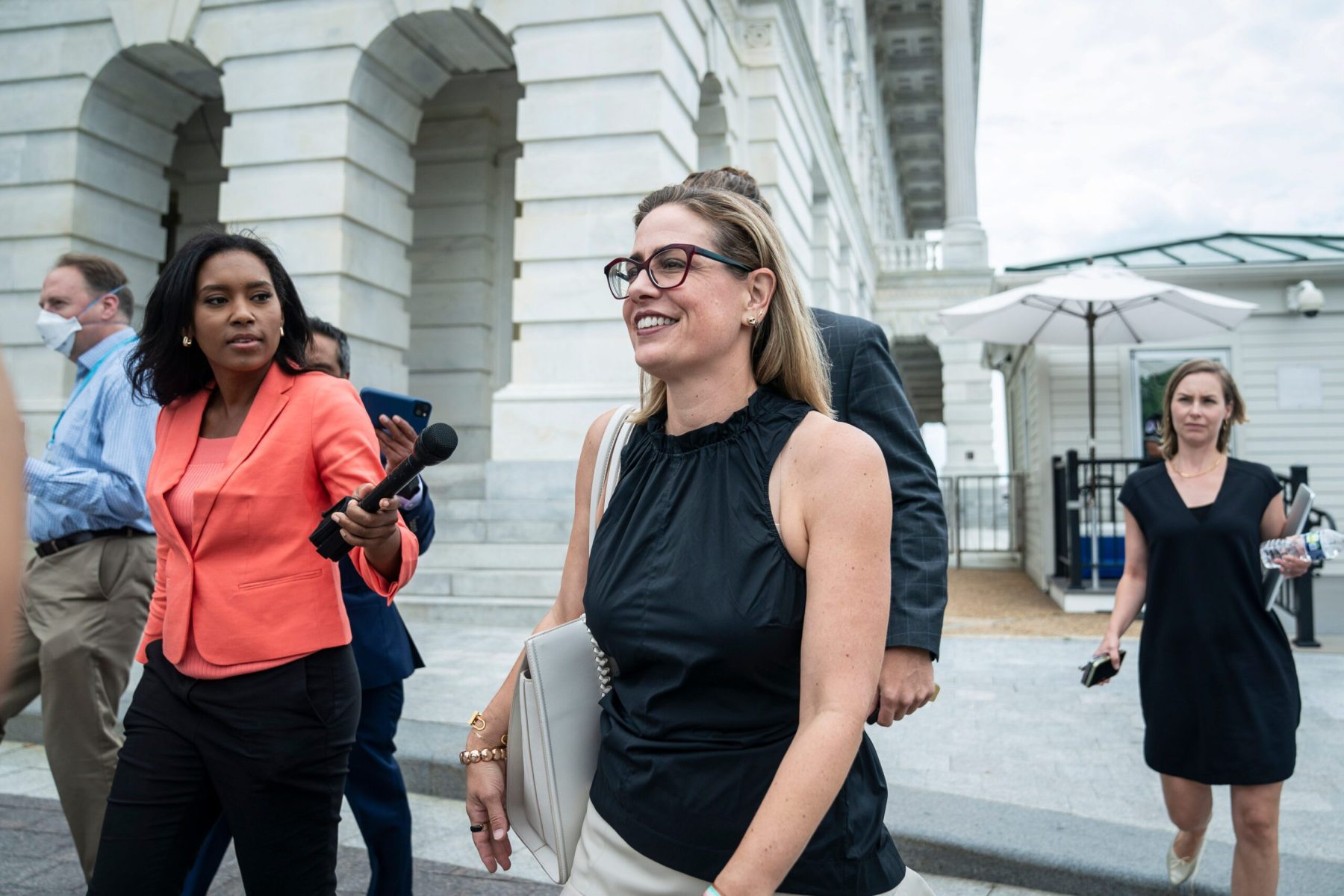Sen. Kyrsten Sinema of Arizona said she’s leaving the Democratic Party and registering as an independent, which would make her the first independent woman senator in history.
“Like a lot of Arizonans, I have never fit perfectly in either national party,” Sinema wrote in an op-ed published in the Arizona Republic on Friday morning. “Becoming an independent won’t change my work in the Senate; my service to Arizona remains the same.”
In total, 77 U.S. senators have been independent or registered with a third party. Sens. Bernie Sanders of Vermont and Senator Angus King of Maine are also registered independents. Both caucus with the Democratic Party, allowing them to serve on committees. Sinema currently serves on three Senate committees and chairs two subcommittees.
Sinema did not explicitly say in her op-ed or an accompanying video if she planned to still caucus with the Democratic Party. A spokeswoman for the Senator later said that Sinema “intends to maintain her committee assignments through the Democrats” but “has not ever and will not attend caucus messaging and organizational meetings.” Sinema emphasized in the op-ed she would continue to support reproductive rights, LGBTQ+ rights and efforts to lower health care costs.
“Arizonans who share my unwavering view that a woman’s health care decision should be between her, her doctor and her family should know that will always remain my position, as will my belief that LGBTQ Americans should not be denied any opportunity because of who they are or who they love,” she wrote. Sinema is the first out bisexual person elected to the US Senate.
She added that “for Arizonans who’ve supported my work to make health care more affordable and accessible, they should know I will continue that work.”
Sinema, elected in 2018, has wielded a significant amount of influence in a Senate that has been divided evenly between 50 Republicans and 50 Democrats for the first two years of President Joe Biden’s presidency. Democrats gained a one-seat Senate majority in the 2022 midterms. It’s unclear if or how Sinema’s decision will change that majority and the power it gives Democrats in the body.
Sinema played a key role in negotiating a major bipartisan infrastructure bill in 2021 and a bipartisan gun safety package this year.
“I promised I would never bend to party pressure, and I would stay focused on solving problems and getting things done for everyday Arizonans,” Sinema wrote in her op-ed. “My approach is rare in Washington and has upset partisans in both parties. It is also an approach that has delivered lasting results for Arizona.”
In a statement, White House press secretary Karine Jean-Pierre called Sinema “a key partner” on the “historic legislation” in President Joe Biden’s agenda passed by the Senate.
“We understand that her decision to register as an independent in Arizona does not change the new Democratic majority control of the Senate, and we have every reason to expect that we will continue to work successfully with her,” Jean-Pierre said.
But Sinema has also rankled progressives and angered the party’s left flank with some of her more moderate policy positions. Her support for the Senate’s filibuster rules and opposition to certain tax hikes sparked anger and open discussion from progressives about challenging her from the left in the Democratic primary when she’s up for reelection in 2024. It’s unclear whether Democrats will put up their own nominee to challenge Sinema, as some progressives are already calling for, which could create a messy three-way race in 2024.
One such group initially formed to challenge Sinema in a primary is now turning its focus toward recruiting and funding a Democratic candidate to run against her in 2024.
“In one way, Sinema just made our jobs easier by bowing out of a Democratic primary she knew she couldn’t win. Now, we’ll beat her in the general election with a real Democrat,” the group, Primary Sinema, said in a Friday statement.
Stephanie Taylor, the co-founder of the Progressive Change Campaign Committee, said in a statement that Sinema has “no constituency in Arizona among Democratic, Republican, or Independent voters.”
“She should join her friends on Wall Street in 2024, and Democrats should nominate someone truly on the side of the working class who can unite and win Arizona,” Taylor said.







